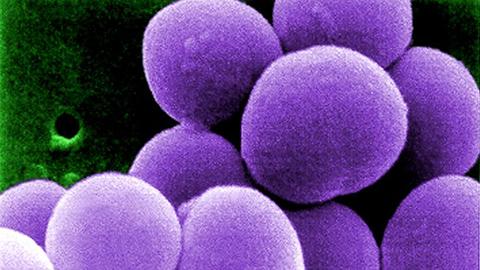UAB researchers develop detection system for antibiotic-resistant genes

08/10/2018
The team of researchers led by Albert Quintana from the UAB Department of Cell Biology and the Institute for Neuroscience has created a method which permits quick and easy detection of an antibiotic-resistance pattern in a clinical sample. This system, which earned the researcher an ERC Proof of Concept grant, will permit doctors to choose the most adequate antibiotic treatment for patients with severe bacterial infections, thereby avoiding an indiscriminate use of antibiotics.
The indiscriminate abuse of these drugs have greatly increased the presence of antibiotic-resistant and multidrug-resistant strains. According to World Health Organization (WHO), the European Commission and the Center for Disease Control and Prevention (CDC), antibiotic resistance is currently one of the most important social and medical menaces. Antimocrobial resistance (AMR) causes some 700,000 deaths annually and in the next 30 years it is expected to be the cause of death of ten million people each year, a context similar to what existed before the discovery of penicillin. It is therefore more than ever necessary to have techniques which help to administer drugs in a more effective manner.
Moreover, the more complicated cases of bacterial infections need quicker and more efficient therapeutic responses. According to current WHO data, some six million people die from bacterial sepsis. Many of these patients did not receive the correct treatment in time. The diagnosis systems developed by Quintana and his team could save many of these lives.
The method devised by his team, formed by ten pre- and post-doctoral researchers, combines immunochemical and genomic methods which allow discovering in a few hours the resistant gene expressed by the pathogenic bacteria found in the clinical sample.
With the grant from the European Research Council (€150,000 for a period of 18 months) researchers will be able to prepare a detection kit and verify whether the method functions effectively for a wide spectrum of bacterial species and strains. At the same time, the team is working jointly with the UAB Valorisation and Patents Office on the design and implementation of a road map which allows optimising and facilitating the transference of this technology to society.
The Proof of Concept grants explore the social and commercial potential of research results funded with previous ERC grants, under the framework of the European Union's Horizon 2020 research and innovation programme. Albert Quintana had already been awarded a European Research Council grant in 2014 for his project "NEUROMITO: Elucidating neuronal susceptibility to mitochondrial disease". Based on this project, his research group opened a new line of research focused on one of the most complicated issues to be seen in the near future: the antibiotics crisis.